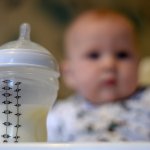Iurii Stepanov/Shutterstock
Over 16 million people in the UK have received at least one dose of a COVID vaccine. The government is now expanding the vaccine rollout to more people, including those who are “clinically vulnerable”. But millions of people with asthma will not be in this priority group, which may sound surprising, given that asthma is a respiratory disease.
Certainly, in the early days of the pandemic, asthmatics were considered to be an extremely vulnerable group and were told to shield. Yet, as we have learned more about COVID and the people it affects, it appears that people with asthma are not at higher risk of severe illness or death from COVID.
Asthma is a complex condition, often caused by the immune system responding inappropriately to various triggers. This results in the airways narrowing, the lungs becoming inflamed and mucus building up. Asthma symptoms (shortness of breath, coughing and wheezing) can be triggered by many things, including pollen and germs.
Respiratory viruses, such as influenza, often cause more severe disease in asthmatics and can cause severe asthma attacks. And the corticosteroid inhalers that many asthmatics use are known to worsen certain illnesses, including the flu, which is why asthmatics are advised to get a flu jab each year.
However, some studies have found that certain elements of the immune response to asthma may protect asthmatics from severe COVID. Asthmatics produce lots of immune-signalling molecules, such as interleukins. Some of these interleukins, such as IL-4, can dampen inflammation and are thought to reduce the damage caused by coronavirus infection.
In addition, eosinophils (a type of white blood cell), which are thought to contribute to the development and worsening of asthma, might counteract severe COVID. Studies have shown that patients admitted to hospital with COVID have reduced numbers of circulating eosinophils. Eosinophils have also been shown to play an antiviral role in other respiratory infections. Asthmatics, who often have large numbers of eosinophils infiltrating their lungs, may have an extra layer of protection against COVID.

ImagineerInc/Shutterstock
Some studies have also suggested that the treatments asthmatics use, such as inhaled corticosteroids, could protect people from severe COVID by tamping down the immune response. However, other treatments, such as oral corticosteroids, may increase the risk of severe COVID. Although both these outcomes depend a lot on whether patients have pre-existing conditions, such as diabetes or high blood pressure.
Some are still at the front of the queue
It is important to note that some asthmatics are still considered clinically vulnerable, including those with severe asthma, and those who suffer frequent asthma attacks or are regularly hospitalised. These people are a higher priority for vaccination.
In a way it is good news for asthmatics: the evidence so far indicates that they are no more likely to suffer from severe COVID than people without asthma. Some studies have even shown that asthmatics have a slightly reduced chance of dying from COVID.
![]()
Grace C Roberts works for Queens University, Belfast and receives funding from the Wellcome Trust.











